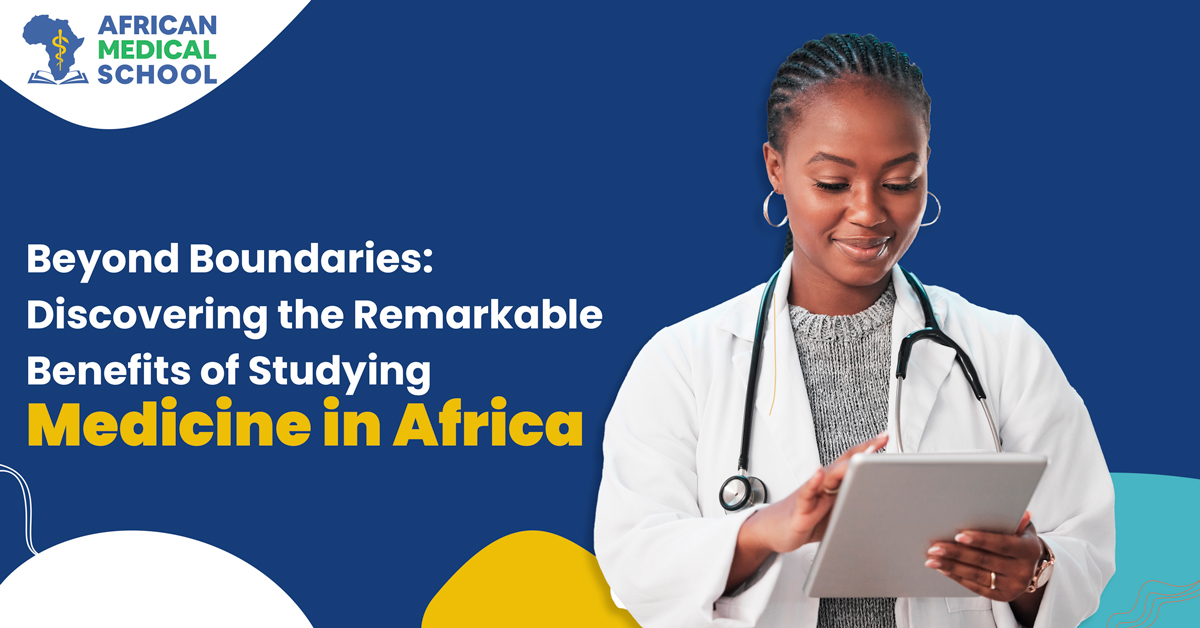|
|
Blog Summary
- Exploring the African Medical Education Landscape
- Clinical Exposure and Hands-On Experience
- Cultural Immersion and Language Skills
- Affordability and Cost-Effective Education
- Resilience and Adaptability in Challenging Environments
- Beyond Boundaries: Discovering the Remarkable Benefits of Studying Medicine in Africa
- Conclusion
- FAQs (Frequently Asked Questions)
Exploring the African Medical Education Landscape
The Rise of African Medical Schools
In recent years, there has been a significant rise in the number of medical schools across Africa. These institutions are working tirelessly to meet the growing demand for healthcare professionals on the continent. With a focus on producing well-trained doctors who can address the specific healthcare needs of African communities, these medical schools offer unique learning opportunities.
The Accreditation and Recognition of African Medical Programs
African medical programs are increasingly gaining accreditation and recognition from international bodies. Many universities in Africa have collaborated with renowned institutions around the world to ensure the quality and relevance of their medical curricula. This recognition allows graduates from African medical schools to practice medicine globally.
Quality of Education in African Medical Schools
Contrary to popular belief, the quality of education in African medical schools is exceptional. These institutions employ highly qualified faculty members who provide students with comprehensive medical knowledge and skills. Students in African medical schools benefit from rigorous training programs that prepare them for the challenges of medical practice.
Clinical Exposure and Hands-On Experience
Clinical Rotations in African Hospitals
One of the remarkable advantages of studying medicine in Africa is the opportunity for extensive clinical rotations in local hospitals. These rotations expose students to a diverse range of medical cases, enabling them to develop critical thinking and diagnostic skills. African hospitals offer an environment where students can witness unique medical conditions and gain valuable practical experience.
Exposure to a Wide Range of Medical Conditions
Africa’s rich and diverse patient population presents an invaluable learning experience for medical students. From tropical diseases to unique genetic profiles, studying medicine in Africa provides exposure to medical conditions rarely encountered in other parts of the world. This exposure cultivates adaptability and a broader understanding of healthcare.
Opportunities for Medical Research and Innovations
Africa’s biodiversity and unique healthcare challenges create a fertile ground for medical research and innovations. Medical students studying in Africa can contribute to groundbreaking research projects focused on understanding and addressing local health issues. This hands-on involvement in research fosters critical thinking and nurtures a spirit of innovation.

Cultural Immersion and Language Skills
Embracing Cultural Diversity in Africa
Studying medicine in Africa offers a chance to immerse oneself in a rich tapestry of cultures and traditions. The continent’s unparalleled diversity allows students to develop cultural competence and gain a deeper understanding of the social determinants of health. This exposure enhances their ability to provide holistic and patient-centered care.
Enhancing Communication Skills with Local Communities
Communication is a fundamental aspect of medicine, and studying in Africa provides a unique opportunity to develop excellent communication skills. Interacting with patients from diverse backgrounds and overcoming language barriers strengthens a student’s ability to connect and empathize with individuals from different walks of life.
Developing Cultural Competence for Global Practice
In an increasingly interconnected world, cultural competence is essential for healthcare professionals. By studying medicine in Africa, students gain invaluable experience in navigating cultural differences and building bridges of understanding. This cultural competence prepares them for global practice and equips them to provide effective healthcare in any setting.
Affordability and Cost-Effective Education
Affordable Tuition Fees and Living Costs
Studying medicine in Africa offers a more affordable alternative compared to many Western countries. Understanding the True Expenses of Medical Education in Africa, including tuition fees and living costs, is crucial for aspiring students. Tuition fees and living costs in African countries are often considerably lower, allowing students to pursue their dreams of becoming doctors without incurring exorbitant debts. This affordability makes medical education accessible to a wider range of aspiring healthcare professionals. If you’re interested in learning more about the true expenses of medical education in Africa, feel free to click here and redirect to my blog.
Scholarships and Funding Opportunities
Various scholarships and funding opportunities are available for international students interested in studying medicine in Africa. These scholarships recognize the importance of fostering a diverse and globally representative healthcare workforce. Students can explore these funding options to support their education and reduce financial burdens.

Maximizing Educational Investments
Studying medicine in Africa provides an opportunity to maximize educational investments. The relatively lower costs of medical education in African countries allow students to allocate resources to other aspects of their education, such as additional certifications, specialized training, or participation in medical conferences and workshops. This further enriches their learning experience.
Resilience and Adaptability in Challenging Environments
Navigating Resource-Limited Settings
Healthcare systems in some African countries face resource limitations and unique challenges. Studying medicine in Africa equips students with resilience and adaptability skills, as they learn to provide effective care with limited resources. These experiences foster creativity, problem-solving abilities, and an appreciation for the value of every healthcare resource.
Building Resilience and Problem-Solving Skills
The demanding nature of studying medicine in Africa cultivates resilience and problem-solving skills in students. They learn to navigate complex medical scenarios, adapt to different healthcare systems, and find innovative solutions in challenging environments. These qualities are invaluable in shaping well-rounded and competent doctors.
Preparing for Global Health Challenges
The exposure to various health challenges in Africa prepares students to address global health issues effectively. The continent faces a diverse range of health concerns, including infectious diseases, non-communicable diseases, and maternal and child health. By studying medicine in Africa, students develop the skills and knowledge necessary to contribute meaningfully to global health initiatives.
Beyond Boundaries: Discovering the Remarkable Benefits of Studying Medicine in Africa
Beyond Medical Knowledge: Cultural Enrichment
Studying medicine in Africa goes beyond acquiring medical knowledge and skills. It offers an immersive experience in a continent teeming with cultural heritage and vibrant communities. Students could explore local traditions, arts, music, and cuisine, enriching their personal and professional lives.
Beyond Clinical Skills: Holistic Approach to Medicine
The remarkable benefits of studying medicine in Africa extend beyond clinical skills. African medical schools emphasize a holistic approach to healthcare, focusing not only on the physical well-being of patients but also on their social, emotional, and spiritual dimensions. This comprehensive approach equips students with a broader perspective on medicine.
Beyond Personal Growth: Making an Impact
Studying medicine in Africa provides a unique platform for personal growth while making a meaningful impact on communities. Students can contribute to healthcare initiatives, engage in community outreach programs, and witness the transformative power of medicine firsthand. This experience instils a sense of purpose and fuels their passion for serving others.
Conclusion
Studying medicine in Africa offers an extraordinary journey beyond boundaries. From the rise of African medical schools to the unique clinical exposure and cultural immersion, the benefits are truly remarkable. The affordability, resilience, and global relevance make Africa an exceptional destination for aspiring healthcare professionals. So, embrace the opportunity to discover the remarkable benefits of studying medicine in Africa and embark on a transformative educational experience.



10 Comments. Leave new
W81bet, eh? Got my curiosity piqued. Hope the odds are good. Gotta do some digging and see if it’s worth the gamble. w81bet
Can you be more specific about the content of your article? After reading it, I still have some doubts. Hope you can help me. https://accounts.binance.info/pt-BR/register-person?ref=GJY4VW8W
pkr98game is a solid choice for a quick gaming session. Nothing too complicated, just pure fun. Give it a shot! pkr98game
Alright, 188be, not bad. Been using it a while, a trustworthy option. You can trust this one 188be!
Hey! Recently gave cashhoardslot a spin. It seems like a niche slot game, definitely seems designed for a certain type of player. I want to try some more slots later cashhoardslot.
881bet login was smooth, no issues there. Pretty standard process, like most other sites. If you’re looking to try something new, this login experience won’t be a headache. 881bet login
I don’t think the title of your article matches the content lol. Just kidding, mainly because I had some doubts after reading the article.
Can you be more specific about the content of your article? After reading it, I still have some doubts. Hope you can help me.
Slot tại fabet có biểu tượng động và hiệu ứng rung (trên điện thoại) – tăng cảm giác chân thực và phấn khích khi trúng thưởng lớn. TONY02-03H
Thank you for your sharing. I am worried that I lack creative ideas. It is your article that makes me full of hope. Thank you. But, I have a question, can you help me?